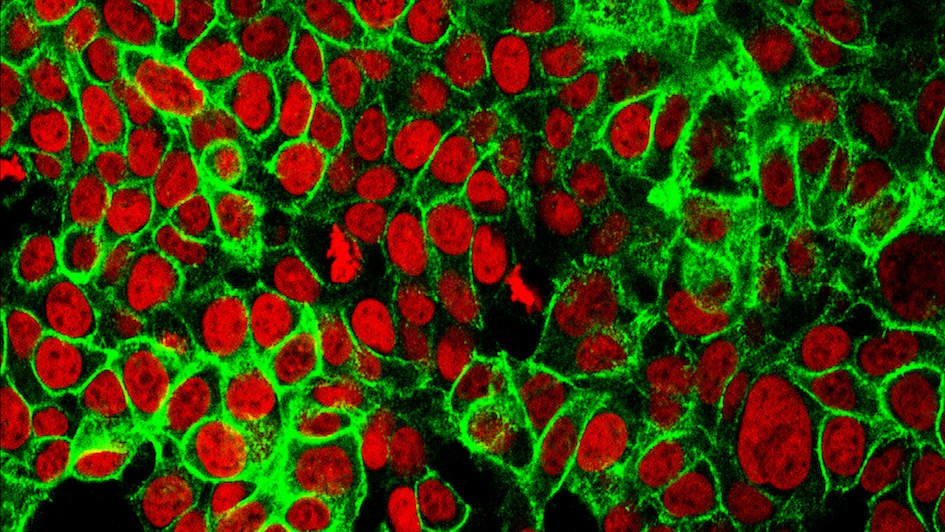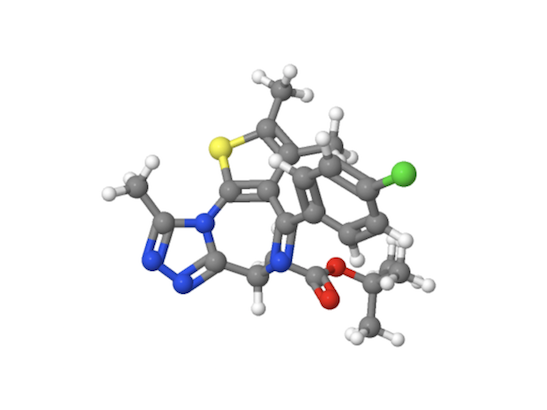
Image: Colon cancer cells. Credit: NIH
Some bowel cancers that are resistant to treatment could be re-sensitised using drugs that reduce inflammation, according to new research.
The study, led by scientists from The Institute of Cancer Research, London, found that genes related to inflammation were enriched in bowel cancer cells that do not respond to the drug trametinib, compared with cells that do respond.
Inflammation refers to the activation of the body's immune system, which naturally occurs in response to infection but also plays a role in cancer, in complex ways which researchers are only beginning to understand.
By treating these cells with an inflammation-reducing compound called JQ1, the team was able to overcome the resistance, with the combination of JQ1 and trametinib killing individual cells and halting tumour growth.
The researchers received funding from a number of sources including Cancer Research UK and the Biotechnology and Biological Sciences Research Council, as well as support from the NIHR Biomedical Research Centre at The Royal Marsden NHS Foundation Trust and the ICR.
Our latest research shows that within the next decade, we can make acute lymphoblastic leukaemia preventable. Your support will help us make this disease a thing of the past.
Targeting inflammation
Writing in the journal Oncogene, the researchers explained that they focused on bowel cancer cells with a mutation to their KRAS gene, which make up around 30 to 50 per cent of bowel cancer cases.
Trametinib, originally developed as a drug for melanoma, was previously seen by researchers as a promising bowel cancer drug and underwent clinical trials in bowel cancer. However, it failed to show a response in the majority of patients. This research offers an explanation as to why this was.
By comparing the genetics of trametinib-resistant cancer cells with those that respond to treatment, the team discovered that the resistant cells had higher levels of activity in their genes related to inflammation.
Similarly, when responsive cells were made resistant to trametinib by exposing them to low levels of the drug over the course of two months, the same genes increased in activity.
Knowing this, the team turned to a class of compounds called bromodomain inhibitors, which are known to reduce inflammation.
Using the bromodomain inhibitor JQ1, the team was able to suppress the activity of these genes – and when later tested in mini-tumours derived from patients’ cancers, JQ1 worked with trametinib to kill cancerous cells.
Overcoming resistance
Dr Steven Whittaker, leader of the Molecular Drug Resistance Team at the ICR, led the research. He said: “Bowel cancer is the fourth most common cancer in the UK, but it is the second most common cause of death from cancer. This shows that developing new treatments for these patients is vital.
“Our research suggests that by suppressing inflammation, it is possible to overcome resistance to drugs like trametinib, potentially opening up new avenues to treating this disease.”
